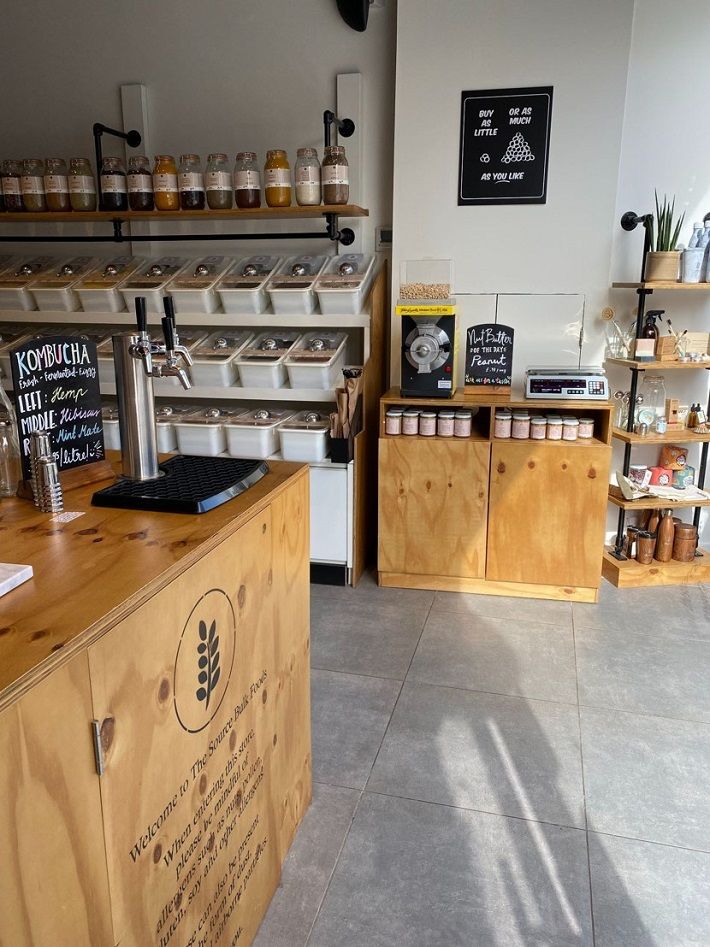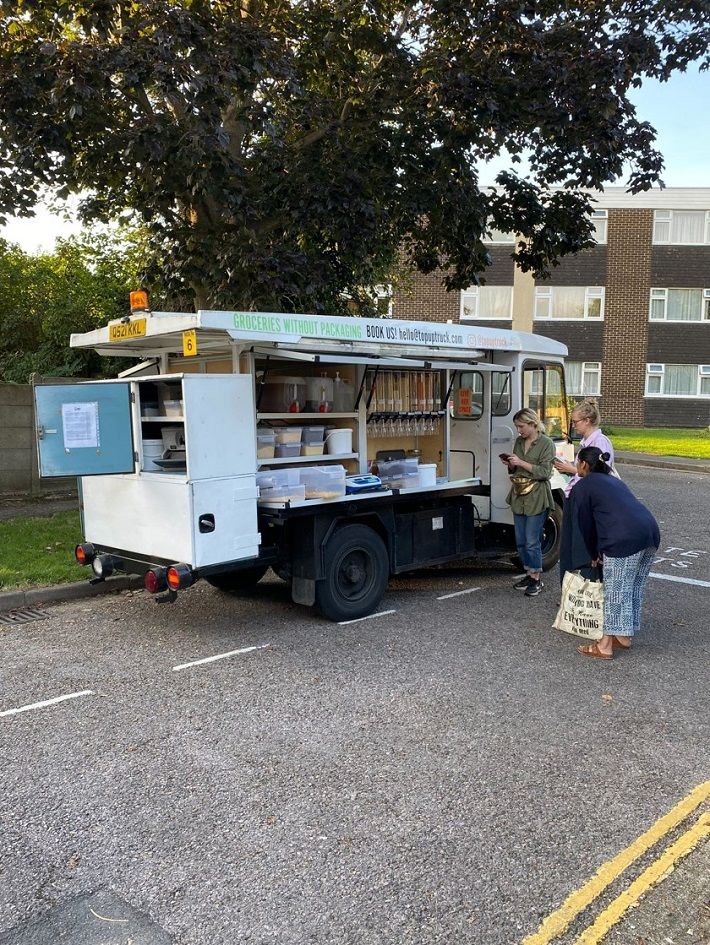Refill Stores
Can I get a refill? Zero waste suppliers are on the rise in the UK, and I've been trying out a few innovative local options.

More and more of us are becoming conscious of the need to move from a linear (make-use-dispose) to a more circular economy where we minimise waste, but when it comes to the food and household products we need everyday, opportunities to go single-use-packaging-free have been few and far between.
However, things seem to be changing.
The major supermarkets have been trialling refill stations in their stores for a few years now, particularly for dried long life products like cereals, pulses and grains. Tesco recently launched a trial called ‘The Loop’ where customers can pay a refundable 20p deposit on containers for a wide range of products, from ketchup to sweets. It’s just like we used to do with glass lemonade bottles at the local corner shop (erm, or so I’m told….am I really that old?), but this time there’s an app for it. Asda just launched their largest ever refill station in their York Monk’s Cross store with over 100 products including pet food and Yorkshire tea. The Bodyshop are rolling out refill stations for their bottle-friendly products, and milkmen and their returnable glass bottles are making a comeback (again, this time there’s an app for it).
In addition, hundreds of independent zero waste stores have popped up across the UK in the last couple of years. I’ve spotted 3 different businesses in my local area, all with particularly innovative solutions to making refilling more attractive and convenient.

Firstly, the dry cleaners by the station. We can definitely file dry cleaners in the category of ‘businesses decimated by the Covid pandemic’. With the nations’ shirts, suits and formal wear mostly languishing in wardrobes (or uncollected at the cleaners) since April 2020, the time was ripe for a pivot, and Zen, a local family business, have done just that. Not only have they switched to a more eco-friendly approach to their traditional core business (wet cleaning is the new dry cleaning, apparently!), they’ve also introduced a refill station for a range of household cleaning and health and beauty products which now takes pride of place in the front of the store.

For my top-up I took some old plastic bottles with the labels ripped off, but apparently many of the regular clientele prefer to buy their rather stylish glass bottles to get going. The products are supplied by Fill, another family-run business based in Northamptonshire, and are all dye-free and biodegradable. Theirs is a closed loop system and deliveries are via electric vehicle, so the whole supply chain is as planet-friendly as possible.

The second store I visited is a branch of The Source Bulk Foods. You can probably guess from the presence of 3 different kombucha flavours on tap that we are in the North London environs. The big appeal of The Source for me was not so much that they offer the opportunity to go packaging-free on the basics like pasta, rice and oil, but that their product range was so interesting and enticing. I got a feeling reminiscent of the one induced by the pick & mix aisle of Woolies when I was a kid, but with added self-congratulatory vibes. The range of dried fruits, mueslis and ‘raw snacks’ was incredible. There was pink Himalayan rock salt, acai powder and a grind-your-own nut butter machine. Surely the foodie-influencers would approve. I did start to have a mild panic when the price of my pistachio Turkish delight started rocketing up at the weigh-in, but luckily it was in a particularly heavy container. The Source also has a reward scheme where you get 5% of what you spend back on your next purchase.

The final business, which I am yet to order from but spotted on a local street, is The Top Up Truck, which is a mobile zero-waste shop operating from an old electric milk float. If you live in one of the territories of East & North London that the truck services on it’s weekly schedule, you can book a slot and they will come right to your house. They don’t carry the entire range (of 150+ products) on the truck so you have to pre-order what you need by midday the day before, but you also don’t have to lug your heavy jars to and from the shop so it’s surely a good trade-off. Another benefit is that even if you’ve not completely run out of something, they can still top you up and you only pay for the extra weight.
As a consumer, getting a refill does take more forward planning and more time investment compared to just grabbing a bottle or packet off a shelf. However, with increasingly convenient and tempting options like the ones popping up near me, it’s harder to find excuses not to. The fact that you only need to buy as much as you need is a boon to budgeting, and to smaller households who can often feel short changed by the bigger-pack, better-value model of mainstream shopping. I can also imagine a new ‘eco-convenience’ model where people drop off their empty bottles on their way to work and pick them up full on the way home would work well in locations close to train stations like Zen’s (should commuting to the office ever become the norm again!).
We’ve all got used to remembering to take our shopping bags with us when we pop to the supermarket, so it’s not too much of a stretch to remember a few empty containers too. The main thing is that we get lots and lots of use out of them, to compensate for all the extra carbon compared to disposable packaging. Now I’m off to munch on Turkish delight and try and re-unite some tupperware tubs with their long-lost lids. I’ll be needing them!
Alison Moriarty, Associate at Geolytix
